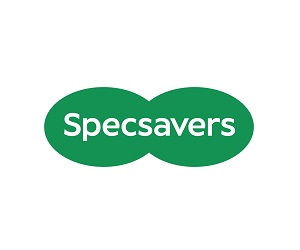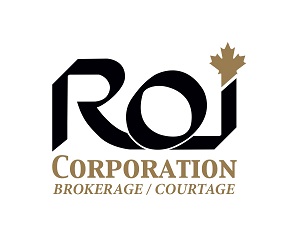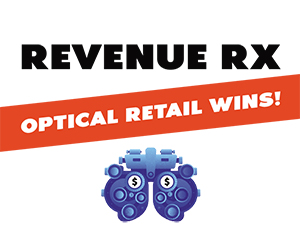
Dr. Roxanne Arnal, CFP®
Creating a Professional Corporation is a privilege that exists in most provinces in Canada. Many years ago, the tax benefits were obvious. With the tax reforms of the late 2010s, near perfect integration was achieved. Today, creating a professional corporation is no longer a simple decision.
Generally speaking, you should consider incorporation if:
- You are earning more than you need to cover your expenses.
- You have reached a financial position to save beyond your TFSA and RRSP.
- You are taking on an ownership position and creating a business you can sell in the future.
What are the annual obligations of a corporation?
A corporation is a tax entity. Much like you, a person, is a tax entity. As a result, the corporation will need to file an annual tax return and pay taxes on earnings. In addition, the corporation needs to legally file a registry return – essentially to prove that the entity is still alive and confirm that the owners haven’t changed.
How are corporations taxed?
Unlike the graduated personal tax rates, corporate tax rates are fixed. Of course, with exceptions! One such exemption is the Small Business Deduction, where on the first $500,000 of active business taxable income, the corporation is taxed at about 12% depending on your province or territory. For earnings beyond this amount, the tax rate jumps up to the general corporate tax rate, which is about 50% depending on your province or territory. And of course, there are always exceptions.
And then there is passive income, like investment income, which is not eligible for the small business deduction. If you realize passive income greater than $50,000 in any given year, you will also start to chip away at the $500,000 maximum eligible for the small business deduction.
Why this matters?
If you are looking to create your professional corporation for the sole purpose of building your investment portfolio, you will likely be disappointed in the outcome. Like all tax planning strategies, there are pros and cons. Yes, when you take a business dollar and invest, you are investing about $0.88 versus about $0.50 personally at top marginal tax rates. So, from a compounding perspective, you can potentially grow your wealth quicker. The drawback occurs if your passive investment earnings exceed $50,000, on top of the tax integration that occurs when you get the money to your pocket.
Remember, in order to spend this money on fun stuff in your freedom years, you will need to get it out of the corporation. This will either occur by declaring dividends or taking salary. Both of these trigger tax before the money becomes available for your use. Tax integration today has removed many of the original benefits that existed in using this strategy.
What are the benefits of a Professional Corporation (PC)?
A professional corporation offers you another tax planning strategy. At the time of writing, having qualified shares in a PC that you can subsequently sell and utilize the Lifetime Capital Gains Exemption (LCGE) – you have a win that can amount to a tax savings of up to $250,000. Yes Please! Of course, not so fast. There are rules around qualifying for the LCGE too.
From a wealth creation perspective, a corporation provides you with another opportunity to diversify your portfolio by adding choices for your future. We don’t know what the future tax system will be, so having access to many different options will leave you with greater flexibility.
There are of course other advantages. A corporation can own property and insurance policies. It can borrow money and manage expenses.
Setting up a Professional Corporation
Starting a corporation will require the filing of legal documents and applications. A professional corporation has the additional layer of the professional requirements. It is therefore critical that you review your college rules for corporations. These can be different from province to province, and from profession to profession, so be sure you and your lawyer understand the rules that apply to you.
I also recommend that you consult both your tax accountant and your lawyer prior to completing any applications. If you have been in business for several years, there may be assets to transfer into the corporation. If there will be multiple shareholders, as in a group practice, you will want to be sure that the share structure is set correctly and is adaptable for future needs.
Of course, you will also need to speak to your general insurer for both the commercial business coverage and liability coverage.
Lastly, be sure to speak with your financial advisor. As your Chief Financial Officer, I’m here to help you ask the right questions. I help you manage your team and ensure that you have thought about the potential issues, like shareholder agreements. Ah yes, another topic for another day!
Have more questions than answers? Educating you is just one piece of being your personal CFO that I offer. Call or email today to start your plan.
Roxanne Arnal is a former Optometrist, Professional Corporation President, and practice owner. Today she is on a mission to empower the finances of her former colleagues.
These articles are for information purposes only and are not a replacement for personal financial planning. Everyone’s circumstances and needs are different. The values provided here are subject to change and should not be construed as fact. Errors and Omissions exempt.

ROXANNE ARNAL,
Optometrist and Certified Financial Planner
Roxanne Arnal graduated from UW School of Optometry in 1995 and is a past-president of the Alberta Association of Optometrists (AAO) and the Canadian Association of Optometry Students (CAOS). She subsequently built a thriving optometric practice in rural Alberta.
Roxanne took the decision in 2012 to leave optometry and become a financial planning professional. She now focuses on providing services to Optometrists with a plan to parlay her unique expertise to help optometric practices and their families across the country meet their goals through astute financial planning and decision making.
Roxanne splits EWO podcast hosting duties with Dr. Glen Chiasson.




















